Sending Email & Text Alerts using Azure Logic Apps
These instructions show how to use Logic Apps to call the IoT Ensemble warm query every 12 hours and check if the Temperature of any of the results is greater than 45. If so, it sends an email alert. Before we get started, here's an overview of the entire Logic App with the steps collapsed.
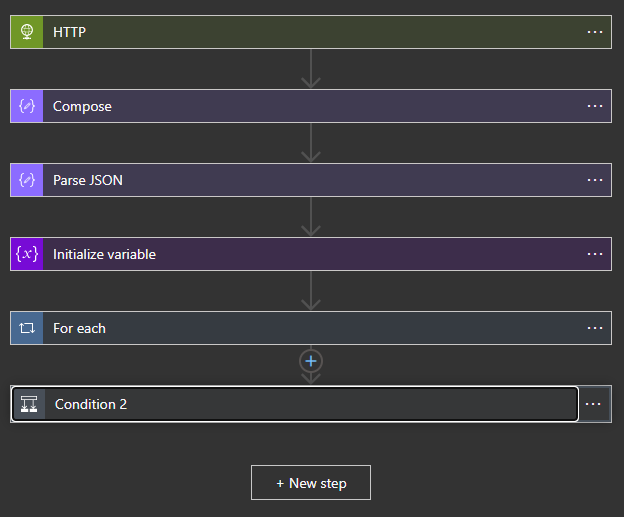
Step 1: HTTP
For the first step of the Logic App, search for 'HTTP'.
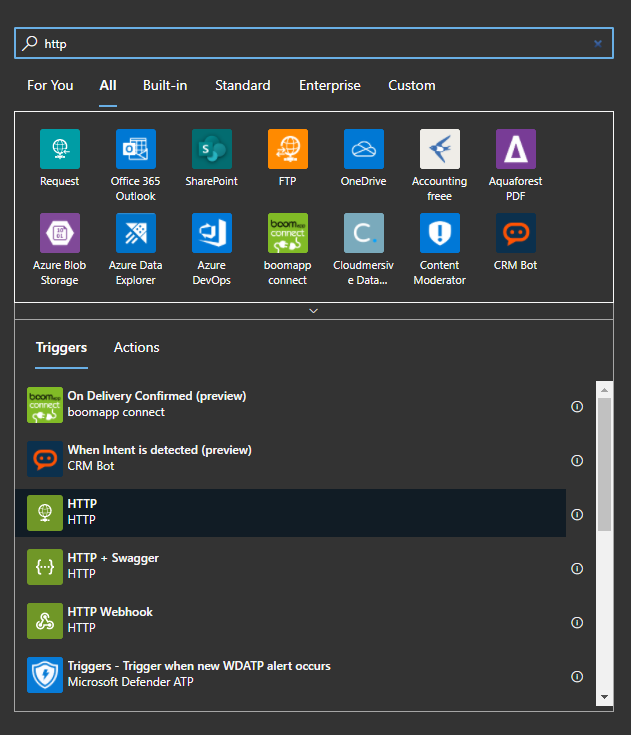
Configure the HTTP trigger with the following settings from your IoT Ensemble account. This example is using the Warm Query.
- Method:
GET - URI:
https://fathym-cloud-prd.azure-api.net/fcp-iotensemble/WarmQuery?includeEmulated=true - Header:
lcu-subscription-key: f24047c3d5b14f**** - How often do you want to check for items?:
12 Hour
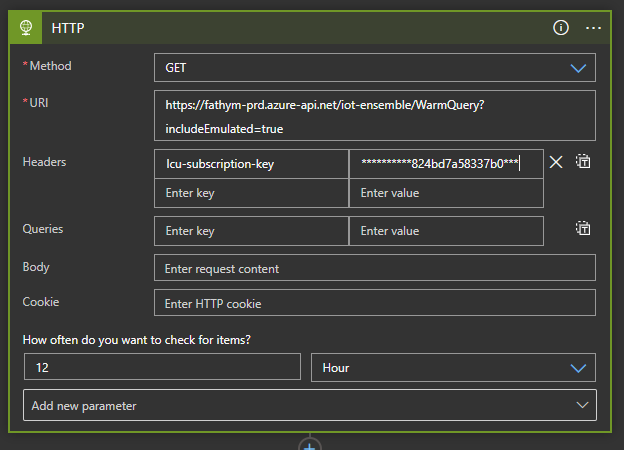
Use your primaryKey or secondaryKey from the IoT Ensemble API Keys for the lcu-subscription-key value. For example:
lcu-subscription-key: f24047c3d5b14f****
In the HTTP trigger above, use the 'How often do you want to check for items' fields to control how often the HTTP trigger calls the IoT Ensemble Warm Query for new data.
Step 2: Parse JSON
For the next step of the Logic App, search for 'Parse JSON'.
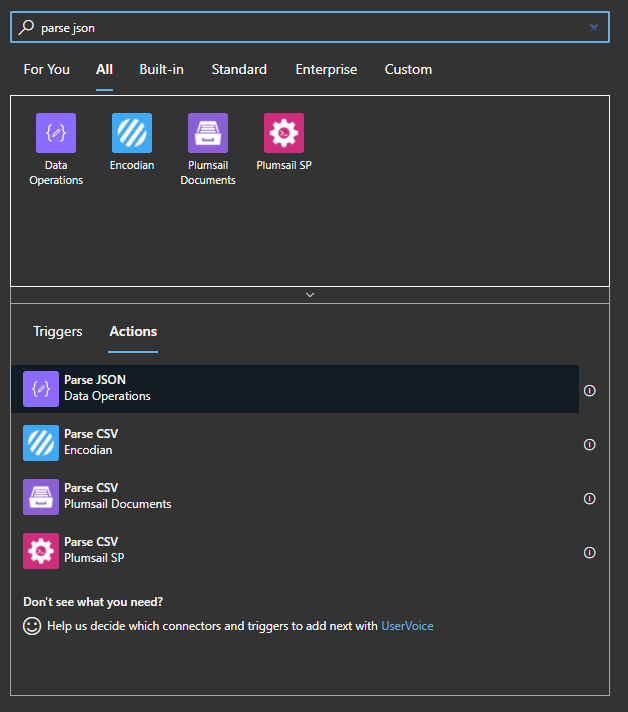
For the Parse JSON content, use the dynamic HTTP Body object from the previous HTTP step. For the Schema, click the 'Use sample payload to generate schema' and paste in the response from the HTTP request sent in step 1. Refer to the screenshot below:
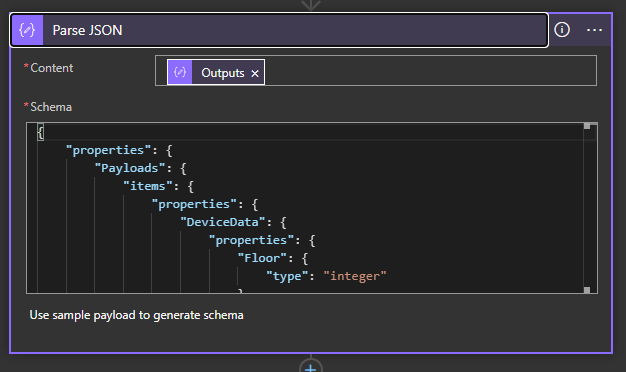
Step 3: For Each
For the next step of the Logic App, search for 'For Each'. Select the 'Control' option.
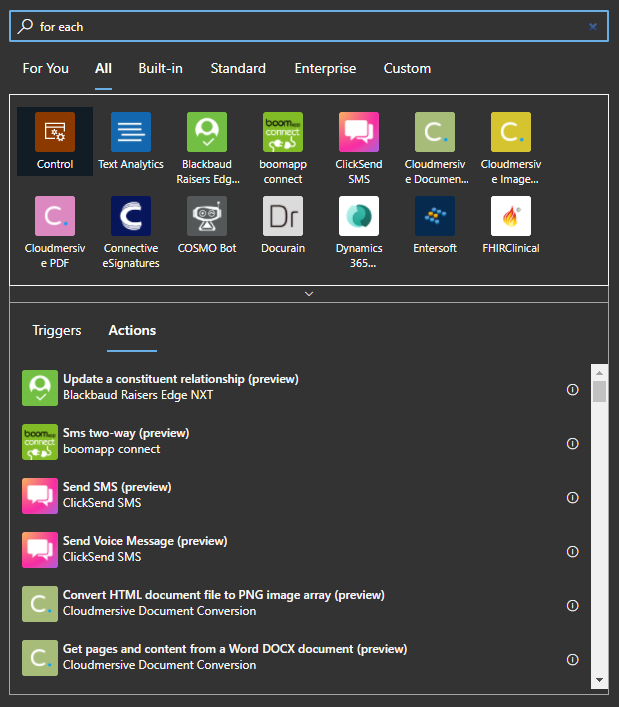
Within the Controls, select the 'For each' action.
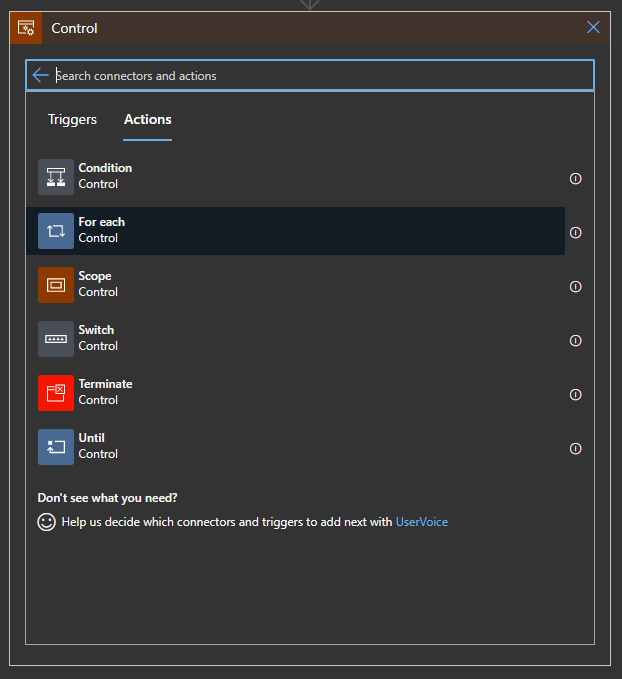
For the output, select the dynamic Payloads object from the previous Parse JSON step.
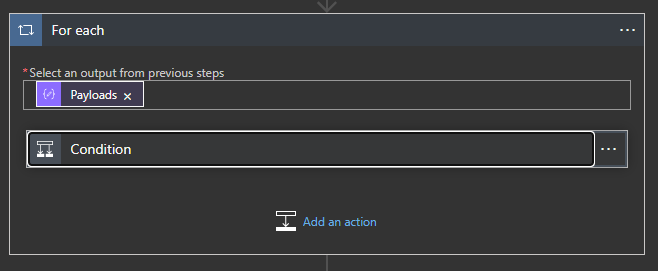
Click the 'Add an Action' button to add an action to the For Each. Search for 'Condition'.
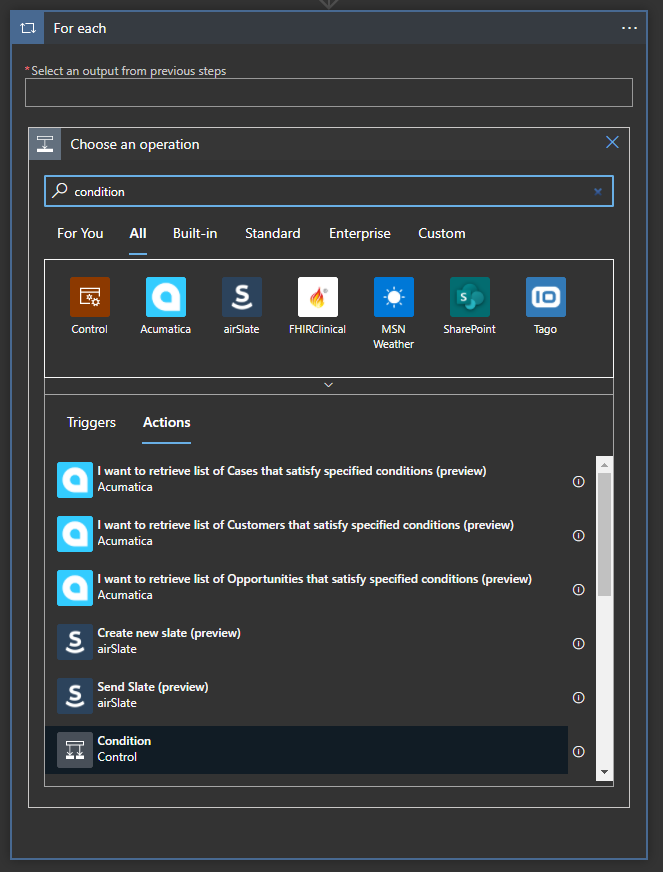
For this condition, I'm checking if the Temperature is greater than 90 AND if the EventProcessedTime is greater than getPastTime(12, 'Hour').
If the condition is True, I will send an email.
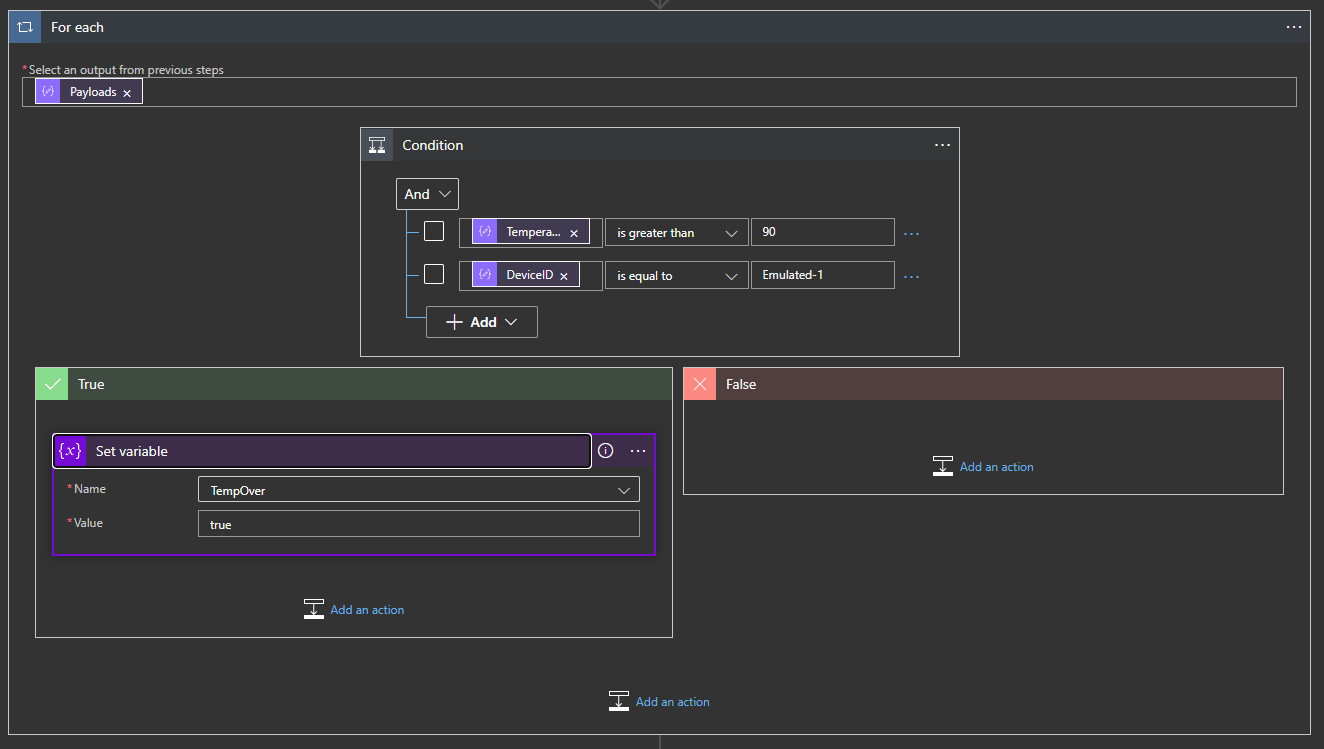
For the "getPastTime(12, 'Hour')" expression to work click on the expression tab of the dynamic content pop-up and add it there.
Adjust the past time to match how often the HTTP request is triggered in step 1.
Step 4: Send Email
When the 'Temperature is over 45' condition is met, we can add an action to send an email alert in the true block. Click the 'Add an action' button inside of true and search for 'Send Email'. Select the 'Office 365 Outlook' option.
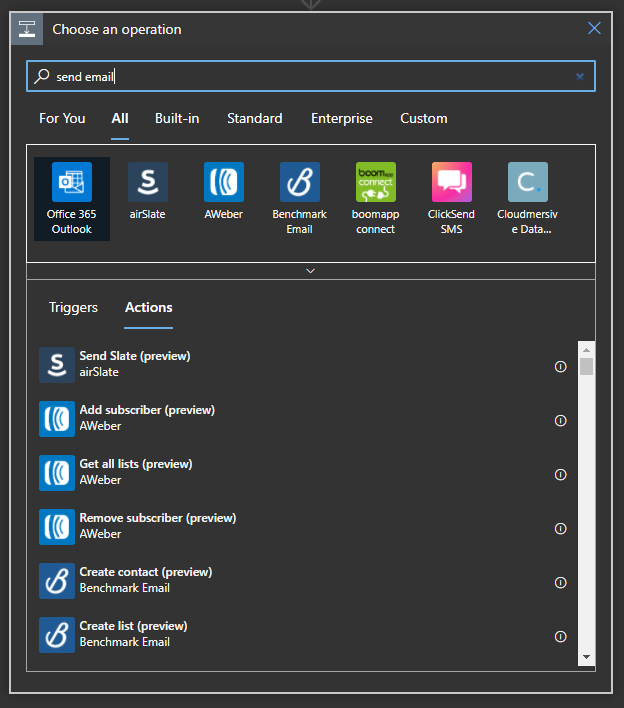
Fill in the email Body, Subject, and To fields based on your needs. You can add dynamic content to give your alerts more context.
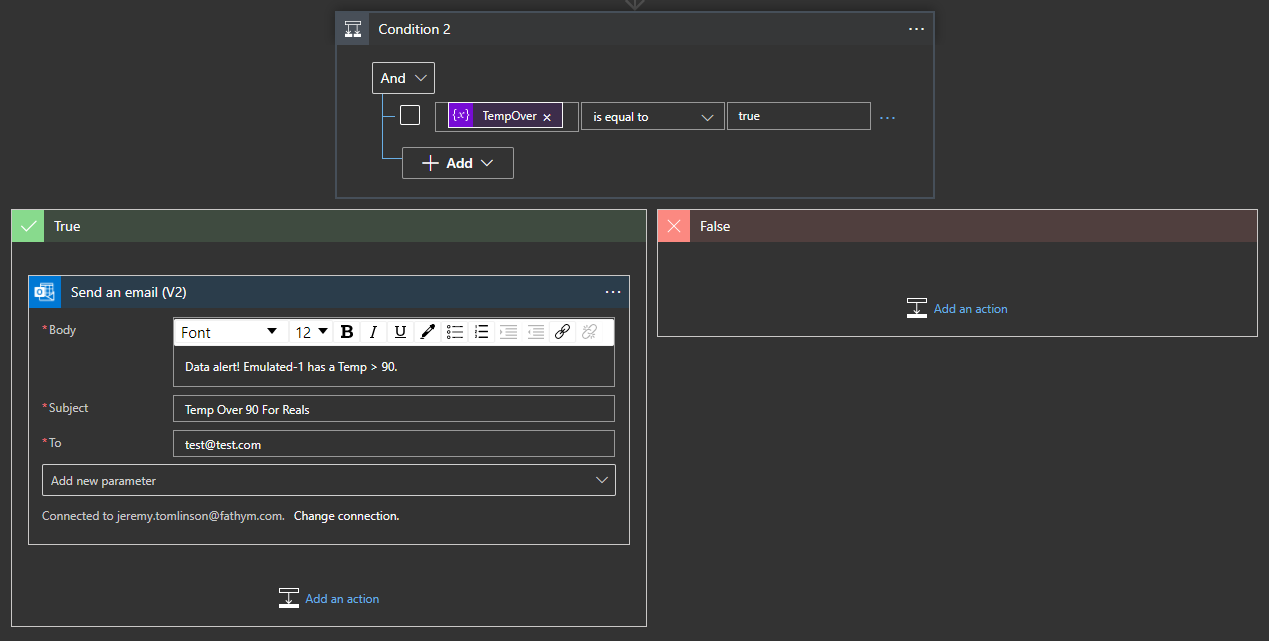
Step 5: Email to Text (SMS)
Texting via email is easy. Type in the recipient's mobile number in front of the "@" sign based on the SMS Gateway. For example, if your recipient’s mobile number is 1-123-456-7891 and their carrier is AT&T, you would type in the following address in the "send to" box: 11234567891@txtatt.net. Almost every single carrier has its own address for this specific purpose, here is a list of all the major carriers’ email to SMS gateways:
- T-Mobile – number@tmomail.net
- Virgin Mobile – number@vmobl.com
- AT&T – number@txt.att.net
- Sprint – number@messaging.sprintpcs.com
- Verizon – number@vtext.com
- Tracfone – number@mmst5.tracfone.com
- Ting – number@message.ting.com
- Boost Mobile – number@myboostmobile.com
- U.S. Cellular – number@email.uscc.net
- Metro PCS – number@mymetropcs.com
Overview of Steps
Here's an overview of the entire Logic App with the steps collapsed. The Logic App calls the IoT Ensemble warm query every 12 hours and checks if the Temperature of any of the results is greater than 45. If so, it sends an email alert.
